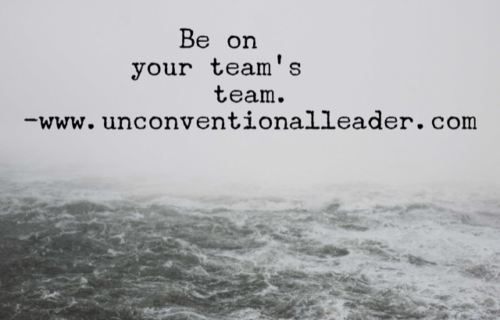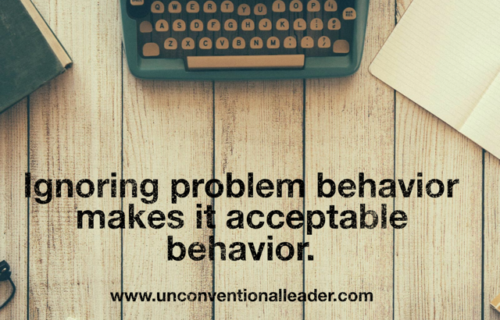Go Free Range!
 “I’d like to thank my parents for ignoring me as a child!” I said, gleefully, as I held the trophy over my head in triumph. Yes, I had won the television trivia contest on board the cruise ship. My mother, who was in the crowd, didn’t see as much humor in my victory speech as I did.
“I’d like to thank my parents for ignoring me as a child!” I said, gleefully, as I held the trophy over my head in triumph. Yes, I had won the television trivia contest on board the cruise ship. My mother, who was in the crowd, didn’t see as much humor in my victory speech as I did.
Yes, I grew up a “free range” kid. I ran around the neighborhood, rode my bike all over town and, evidently, watched way too much TV growing up. My parents were there, loved me, and could always be counted on for advice and/or direction, but they didn’t insert themselves in the daily dealings of a prepubescent teen. As a result, I grew up able to figure things out on my own, have a fierce sense of independence and rely creatively on my own wits to get myself out of hot water (as a kid, I would’ve always much rather have fixed a “mistake” than have my ol’ man fix it for me). These are all traits that served me, and those I worked for, well in the workforce. These are also traits that I tried to foster in those that were charged to my stead when I got the privilege of leading. These are not traits, however, that I see fostered much in today’s micro-managed workforce.
Forbes magazine rates micro-managing as one of the key factors in employee disengagement. Further, micro-managing can lead to degraded trust, team stagnation, and, finally, turnover – the team member quitting the “manager, not the organization”. If you want team members that are engaged, independent, and take ownership of what they do, I think adopting a “free range” management style is in order. It worked for me (and my parents) and I think it will work for you as well. Here are a few tips that can help you go “free range”.
Be Around But Don’t Hover Around
Growing up, I always enjoyed the fact that I knew my parents were there but they were busy! My Dad worked multiple jobs to support the family (there were six kids) and my Mom worked tirelessly as a nurse but, at the end of the day, I knew that if I needed them they were there. They never stood over my shoulder as I did something to check the status or spontaneously critique. This helped me learn to do things on my own and also gave me a feeling of accomplishment when I was done. As leaders, we can do the same. We can be there. Not shut up in our office, with our door closed and checking emails or voicemails but actually there. Granted there will be times when I’ve had to shut myself up to get things done but, then, I’d open the door, take a walk around and be present. Being present is like a present to your team. They know you’re around and, mostly, that’s enough. Mistakes will be made but mistakes are a part of the learning process.
Ask Questions But Try Not To Offer Advice Unless Asked
My Dad had an innate ability to offer a great blue collar philosophy (that was both germane and deep) on just about any problem I faced (since his name was Gene, we called them Eugenisms) but he wouldn’t offer them unless I asked. He would ask me how things were going, if I needed any help, or would stop me and redirect if I was in danger but he never jumped in unasked. I’ve found that unsolicited advice and constant corrective action erodes confidence. Haven’t you? Wouldn’t you rather ask when you need the help rather than be told how to do something? Let’s face facts…the people doing the job normally know the job best. Ask them if they need help, offer if they ask and redirect if there’s a danger. This is a major trust builder!
Give Them The Conn
For those that are Star Trek fans or nautical terminology buffs, you have an idea of what this means. Roughly, it means that you have control of the situation (Google it!). As I stated previously, rarely did my parents insert themselves in the dealings of a prepubescent teen. I was expected to figure it out on my own. If I had an altercation with the kid up the street, I had the conn to figure out how to rectify the situation. As a team member, I loved the autonomy (when given) to come up with a creative solution to a problem that was faced. As leaders, we should avail the same. When we insert ourselves into issues that people can figure out on their own, we aren’t doing them any favors. We, in essence, teach them to sit stagnant when a situation comes up until help arrives. Team members that have the conn learn how to be self reliant and creative. Further, when people have the conn they are more committed to the end result because they are vested in the outcome. Let go and give them the conn!
Growing up a “free range” kid was the best gift my parents ever gave me and is also the best gift you can give your team members. If you want to see more creativity, productivity, and self-reliance, step back and go “free range” in your management style. I think you will see these traits manifest and, possibly, a little bit more (provided there’s not a TV around).





